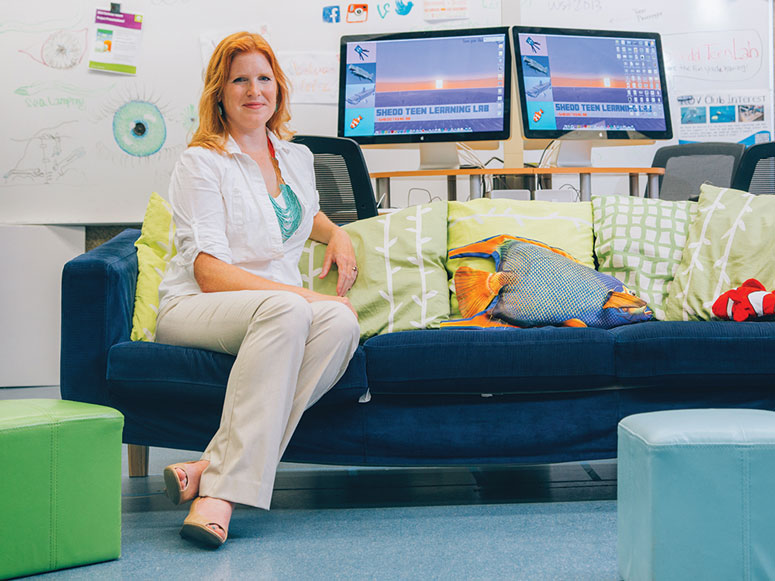The science-learning landscape is shifting. As information becomes more readily available, learning environments become transformed with the help of technology and individuals take more ownership of their education in and out of the classroom. For example, the Maker Movement has helped the act of doing science and engineering become more accessible and achievable for a wider range of individuals. To make can mean to try and to fail, and to learn from those failures as one continues in the making process. Such lessons are seldom taught in the classroom, but informal science settings such as Maker Faires, museums, and youth-driven media spaces broaden this new perspective of how one learns.

Photo: Michael Goss
The science-learning landscape is moving from an emphasis on knowledge transfer from experts and textbooks to generating one’s own knowledge through firsthand experiences and experimentation. This is not to say that the classroom experience is no longer relevant. Rather, this is a time for informal science settings to rise to the occasion to meet the needs of learners through their unique offerings and resources.
At Shedd Aquarium in Chicago, an array of programs strives to help learners become more confident and competent in engaging with science and the environment. The Asian Carp Exploration Curriculum for seventh through ninth grades allows students to explore the complex issues surrounding such aquatic invasive species as Asian carp in the Great Lakes. Using science, technology, engineering, and math (STEM) principles, students take on multiple stakeholder perspectives and propose plausible solutions to this real-world problem.
The Teen Learning Lab is a dynamic, flexible learning space for teens to explore their interests around science and the environment. Utilizing a connected-learning framework (Ito et al., 2013), this space fosters peer-supported, interest-powered, and academic-oriented learning activities for teens from across the Chicago area. Teens use an array of technology including Apple MacBooks and iPads, podcasting equipment, scanners, SmartBoards, and Adobe software suites to generate their work. They may also use a 3-D printer to model an addition to an animal habitat or program and Minecraft to create their own online games about marine-protected areas.
Finally, Shedd’s Summer Road Trip teaches youth about their local ecosystems by immersing them in that environment and integrating technology to further question and investigate the natural phenomena. For instance, participants use iPads to conduct ethograms on animal behavior so they may better understand the animal’s role in the ecosystem and the challenges animals face.
These programs extend the learning that happens in the classroom, bringing the textbook alive and providing rich opportunities for learners to further develop their understanding of science concepts and processes. True to the core of IIT’s mathematics and science education department, many of these programs hold up the tenets of the nature of science and science inquiry; they emphasize collaboration and creativity, questioning and investigation, observations and inference, and making informed decisions based on evidence. Informal science-education experiences such as these will be critical as the learning landscape continues to shift and education extends beyond the four walls of the classroom. It is truly the union of informal and formal learning that will best prepare the next generation of global citizens and informed decision-makers.